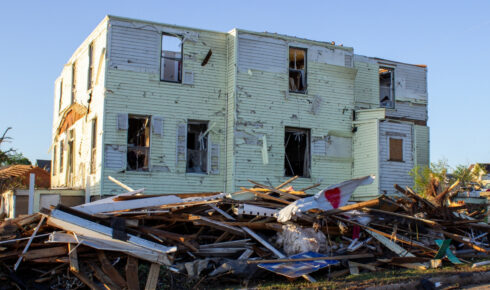
Just about every ministry has been affected by the unique challenges that 2020 brought. But some communities were hit harder than others. Perhaps the most vulnerable were the homeless and other people who relied on social services to survive. Anna Marie Mazzone, an FMI missionary worker who serves in the German town of Bielefeld, knows this all too well.
She has been leading a multi-church ministry to the addicts, homeless and youth who live on the streets of Bielefeld since 2013. Her street church gathered around weekly dinners and personal ministry at a train station where many people spend much of their day, set up camp, or buy, sell and take drugs.
“We go to them … I say my street church has a lot of issues, but attendance isn’t one of them!” Anna Marie notes with a touch of humor.
The ministry was growing. It had spawned a second gathering focused on discipleship for those who were interested in engaging with Jesus further. Just three months after that group began, however, the lockdowns caused by the coronavirus pandemic caused a major disruption not just to the ministry but to the community’s very way of life. The already meager sources of food and money that many of her congregants relied on were now gone as fear and sickness gripped the city.
“They were seeing the world changed and being put under pressure, and they were asking questions. They were much more open for prayer and to talk about Jesus. People who were closed off before were opening up because they were scared.” —Anna Marie Mazzone
“There were a lot of people that were really hungry,” recalls Anna Marie. “The situation got really bad, and people became more aggressive. It became a very different atmosphere on the street.”
Despite these challenges, Anna Marie and her team were not deterred. In fact, they only worked harder. They began spending between 100 and 150 euros every week buying food packages and hitting the street almost every single day during the lockdown to feed, pray with, and minister to people one-on-one.
While her ministry may have had to change in response to the crisis around her, Anna Marie says her opportunities for evangelism actually increased.
“They were seeing the world changed and being put under pressure, and they were asking questions. They were much more open for prayer and to talk about Jesus. People who were closed off before were opening up because they were scared,” she explains.
Even after the lockdowns in Germany ended and the discipleship group was able to meet again, she found that the people who attended were more interested and more serious about learning what it means to follow Jesus. The obstacles of the previous months had really refined her ministry, and allowed for a clearer vision and a bolder disposition to implement it.
“There’s an intensity of focus, an urgency that has come,” Anna Marie shares in response to how these challenging times have shaped her own relationship with God. “It’s been extremely impactful for me personally, wanting to stand, fighting the spiritual battles, seeing and watching people die, the urgency of sharing the gospel and being that light for them.”
Having been on the forefront of the pandemic and its wake, Anna Marie encourages all of us that the Word of God and His purpose have not changed, even if our methods must to move forward.
“When I think back to what the early church went through and how they were heavily persecuted, and the chaos, the restrictions, the way ministry had to be flexible, yet God took all of that and did so much more than anyone imagined,” she says. “I encourage us to keep the focus on what God can do and not what we can do, or not do. We need to shift from program-oriented church back to relationship-oriented church, and how to do that in the regulations and restrictions that we have. It is my prayer that we come back to a focus on the gospel and discipleship.”


